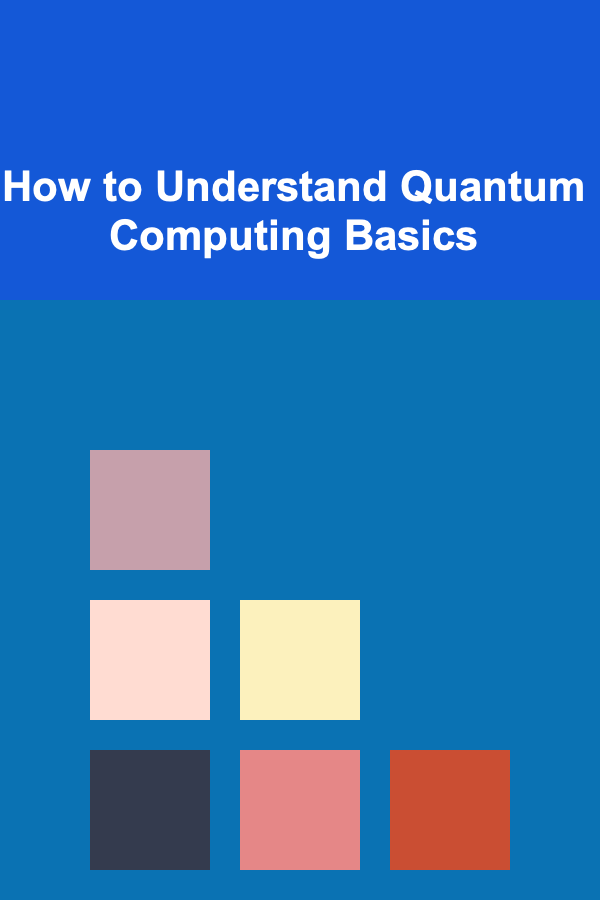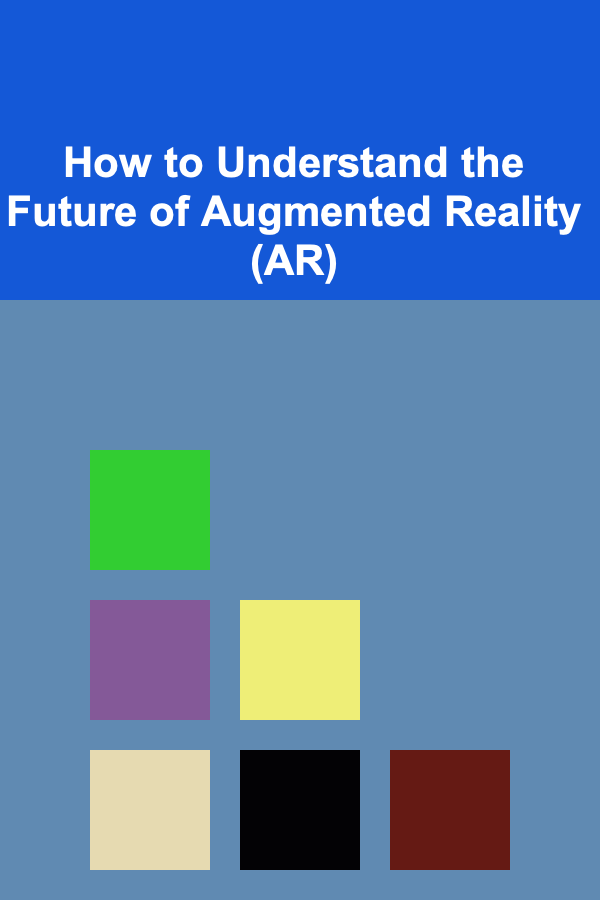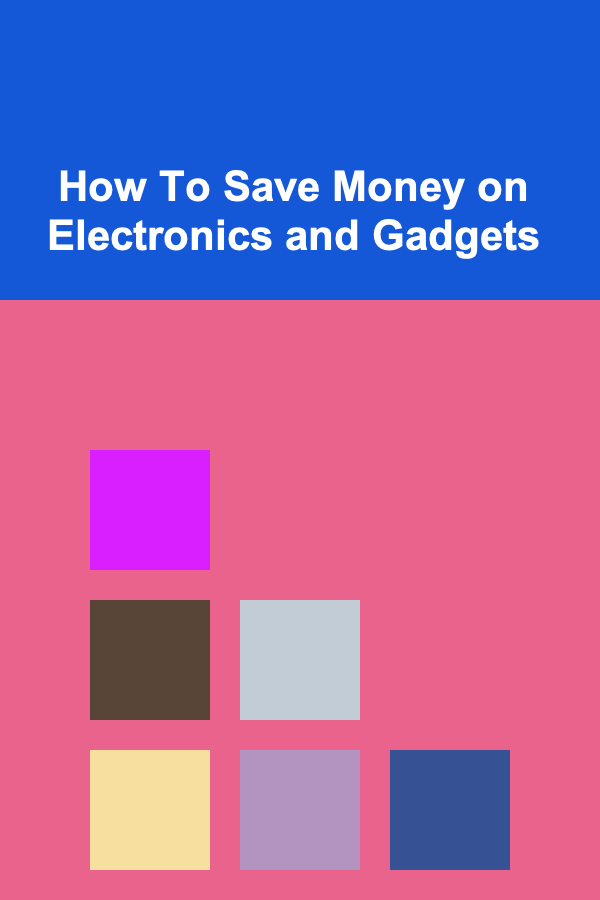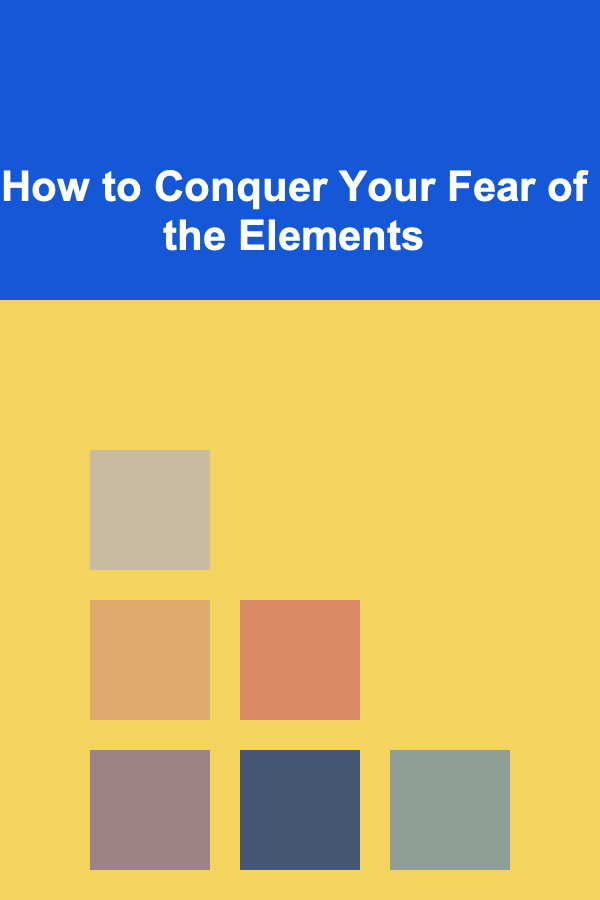
How to Understand Quantum Computing Basics
ebook include PDF & Audio bundle (Micro Guide)
$12.99$5.99
Limited Time Offer! Order within the next:

Quantum computing is an emerging field of technology that has the potential to revolutionize various industries by solving complex problems that classical computers are unable to handle efficiently. However, understanding quantum computing can be daunting because it involves concepts from quantum mechanics, mathematics, and computer science. Despite its complexity, gaining a basic understanding of quantum computing can be incredibly rewarding, especially if you're looking to stay ahead of technological trends.
In this article, we'll break down the basic concepts behind quantum computing in a way that's accessible to those who are unfamiliar with the topic. We'll explore the fundamental principles of quantum mechanics, how these principles apply to quantum computing, and how quantum computers differ from classical computers. We will also look at the potential applications of quantum computing and why it's considered a breakthrough in computational power.
Introduction to Quantum Computing
Classical vs Quantum Computing
To understand quantum computing, it's essential to first understand classical computing, the type of computing that powers most of the world's devices today. Classical computers rely on bits, which are binary units of information that can be either 0 or 1. These bits are processed using algorithms to perform computations.
Quantum computers, on the other hand, use quantum bits, or qubits. Unlike classical bits, qubits can exist in multiple states simultaneously due to the principles of quantum mechanics. This ability to represent multiple states at once is known as superposition. Additionally, qubits can be entangled, meaning that the state of one qubit can influence the state of another, regardless of the distance between them. These properties allow quantum computers to perform certain types of computations much more efficiently than classical computers.
Why Quantum Computing Matters
Quantum computing offers the potential to solve problems that are currently intractable for classical computers. Problems like large-scale data analysis, cryptography, drug discovery, and optimization tasks that involve many variables can benefit from quantum computing's unique capabilities. By harnessing the power of quantum mechanics, quantum computers can exponentially increase processing power, opening doors to breakthroughs in artificial intelligence, material science, and other fields.
However, quantum computing is still in its infancy. There are many challenges ahead in making quantum computers more accessible, stable, and scalable. Understanding the fundamentals of quantum computing is key to appreciating its potential and its limitations.
The Basics of Quantum Mechanics
Before diving into quantum computing, we need to understand some core concepts of quantum mechanics. Quantum mechanics is the branch of physics that deals with phenomena on a very small scale, such as atoms and subatomic particles. Unlike classical physics, which operates under predictable rules, quantum mechanics operates on probabilities and uncertainties.
2.1 Superposition
One of the most fundamental concepts in quantum mechanics is superposition. Superposition allows quantum particles, such as electrons, to exist in multiple states at once. In classical terms, a bit is either 0 or 1. A qubit, however, can be in a state that is a combination of 0 and 1 simultaneously.
To visualize this, imagine a spinning coin. While the coin is spinning, it is both heads and tails at the same time. Only when you stop the coin does it settle into a single state (either heads or tails). This is analogous to superposition: a qubit exists in a state of both 0 and 1 until it is measured, at which point it collapses to one of the two states.
2.2 Entanglement
Another key concept is entanglement. In quantum mechanics, particles can become entangled, meaning their states are linked, even if they are physically separated by large distances. When two qubits are entangled, the state of one qubit is dependent on the state of the other, no matter how far apart they are.
This phenomenon was famously described by Albert Einstein as "spooky action at a distance." Entanglement has been demonstrated experimentally and is a key resource for quantum computers. When qubits are entangled, the information they contain can be processed in parallel, significantly speeding up computation.
2.3 Quantum Interference
Quantum interference refers to the phenomenon where the probability of a quantum event occurring is altered by the interference of different paths the quantum system could take. In classical mechanics, interference can be visualized by two waves either reinforcing or canceling each other out. In quantum computing, interference is used to amplify the probability of correct answers and cancel out incorrect ones.
Interference is essential in quantum algorithms because it allows the computer to eliminate wrong answers and arrive at the correct one with a higher probability.
The Building Blocks of Quantum Computing
3.1 Qubits
At the heart of quantum computing are qubits. A qubit is a quantum version of a classical bit, but it has several distinct properties:
- Superposition: A qubit can be in a superposition of both 0 and 1.
- Entanglement: Qubits can be entangled, meaning their states are linked, even when separated.
- Interference: Quantum algorithms rely on interference to manipulate the probabilities of qubit states and guide the system toward the correct answer.
Qubits are typically realized using various physical systems, such as trapped ions, superconducting circuits, or quantum dots. Each of these systems has its own advantages and challenges, but all of them leverage quantum mechanical phenomena to process information.
3.2 Quantum Gates
Quantum gates are the building blocks of quantum algorithms. Just as classical computers use logical gates (such as AND, OR, and NOT gates) to manipulate bits, quantum computers use quantum gates to manipulate qubits. These quantum gates work by applying specific operations to a qubit's state, changing its probabilities.
Some common quantum gates include:
- Hadamard Gate: This gate creates a superposition state from a qubit that is initially in a definite state (0 or 1).
- Pauli-X Gate: This gate is equivalent to a classical NOT gate, flipping the state of the qubit.
- CNOT Gate: The controlled-NOT gate is a two-qubit gate that flips the state of the second qubit (the target) if the first qubit (the control) is in state 1.
These quantum gates form the basic operations in quantum algorithms and allow for the manipulation of qubits in a way that exploits their quantum mechanical properties.
3.3 Quantum Circuits
A quantum circuit is a sequence of quantum gates that are applied to a set of qubits. These circuits are the quantum analog of classical algorithms and are designed to solve specific computational problems. Quantum algorithms use these circuits to perform tasks such as searching databases, solving optimization problems, and simulating quantum systems.
Building efficient quantum circuits is a significant challenge in quantum computing, as the circuits must maintain the delicate quantum state of qubits without introducing too much noise or error. Researchers are actively working on ways to improve the stability and scalability of quantum circuits.
Quantum Computing Algorithms
Quantum algorithms exploit the principles of quantum mechanics to solve problems more efficiently than classical algorithms. While classical algorithms often require an exponential amount of time to solve complex problems, quantum algorithms can solve these problems in polynomial time, which is a significant speedup.
4.1 Shor's Algorithm
One of the most famous quantum algorithms is Shor's algorithm, which solves the problem of factoring large integers exponentially faster than the best-known classical algorithms. The ability to factor large numbers quickly has significant implications for cryptography, as many encryption schemes, such as RSA, rely on the difficulty of factoring large numbers.
Shor's algorithm demonstrates the potential of quantum computing to break current encryption methods, which is why there is active research into developing quantum-resistant encryption methods.
4.2 Grover's Algorithm
Another important quantum algorithm is Grover's algorithm, which provides a quadratic speedup for unstructured search problems. Grover's algorithm can search through an unsorted database of N items in roughly √N steps, compared to the N steps required by classical search algorithms. This makes it faster for certain types of optimization and search problems, though the speedup is not exponential like in Shor's algorithm.
Grover's algorithm has potential applications in areas like data mining, machine learning, and optimization.
Challenges and Future Directions
Quantum computing is still in its early stages, and many challenges remain before it can be widely deployed for practical applications. Some of the major hurdles include:
- Decoherence and noise: Quantum states are fragile and can be disrupted by external factors, such as temperature fluctuations and electromagnetic radiation. Researchers are working on ways to isolate qubits from these disturbances.
- Scalability: Current quantum computers can only handle a small number of qubits. Scaling up to thousands or millions of qubits is a significant technical challenge.
- Quantum error correction: Because quantum systems are highly sensitive to errors, quantum error correction is essential to ensure reliable computation. Developing efficient error-correction techniques is an ongoing area of research.
Despite these challenges, there has been significant progress in quantum computing research. Companies like IBM, Google, and Rigetti Computing, as well as academic institutions, are working tirelessly to build more powerful and scalable quantum computers. As this field evolves, the potential applications of quantum computing will likely expand into industries ranging from pharmaceuticals to finance, artificial intelligence, and beyond.
Conclusion
Quantum computing is a fascinating and complex field that combines principles from quantum mechanics, computer science, and mathematics. While it is still in its early stages, the potential of quantum computers to solve problems that are beyond the reach of classical computers is immense. By understanding the basics of quantum computing, including the concepts of superposition, entanglement, and quantum algorithms, we can begin to appreciate the transformative power of this technology.
As research continues and quantum computers become more powerful and accessible, they will likely revolutionize industries and pave the way for solving some of the world's most pressing challenges. By learning about quantum computing today, we can better prepare for the quantum future ahead.

How to Create a Checklist for Goal Setting in Times of Change
Read More
How to Maintain a Clutter-Free Craft Area
Read More
Why Setting Up a Family Command Center is Beneficial
Read More
How to Understand the Future of Augmented Reality (AR)
Read More
How To Save Money on Electronics and Gadgets
Read More
How to Conquer Your Fear of the Elements
Read MoreOther Products

How to Create a Checklist for Goal Setting in Times of Change
Read More
How to Maintain a Clutter-Free Craft Area
Read More
Why Setting Up a Family Command Center is Beneficial
Read More
How to Understand the Future of Augmented Reality (AR)
Read More
How To Save Money on Electronics and Gadgets
Read More